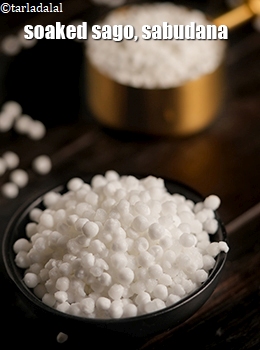Soaked sago

Wash the sago pearls in running water without applying too much pressure by hand. Soak them in water or thin buttermilk for an hour. Drain, sprinkle a little water and allow them to soak further for 2-3 hours, sprinkling water once in a while.